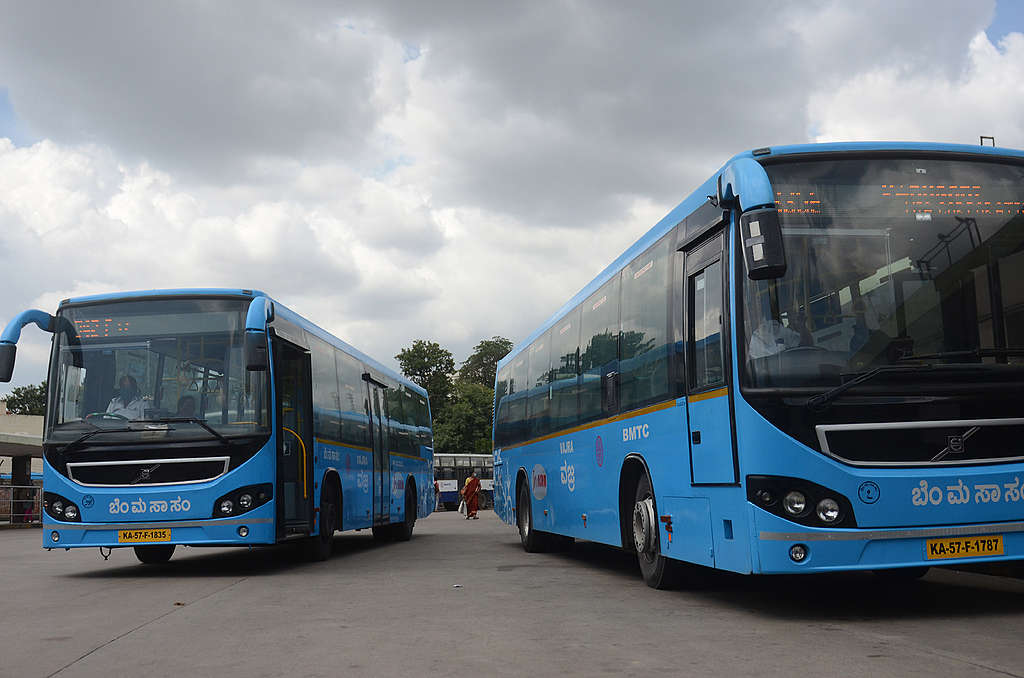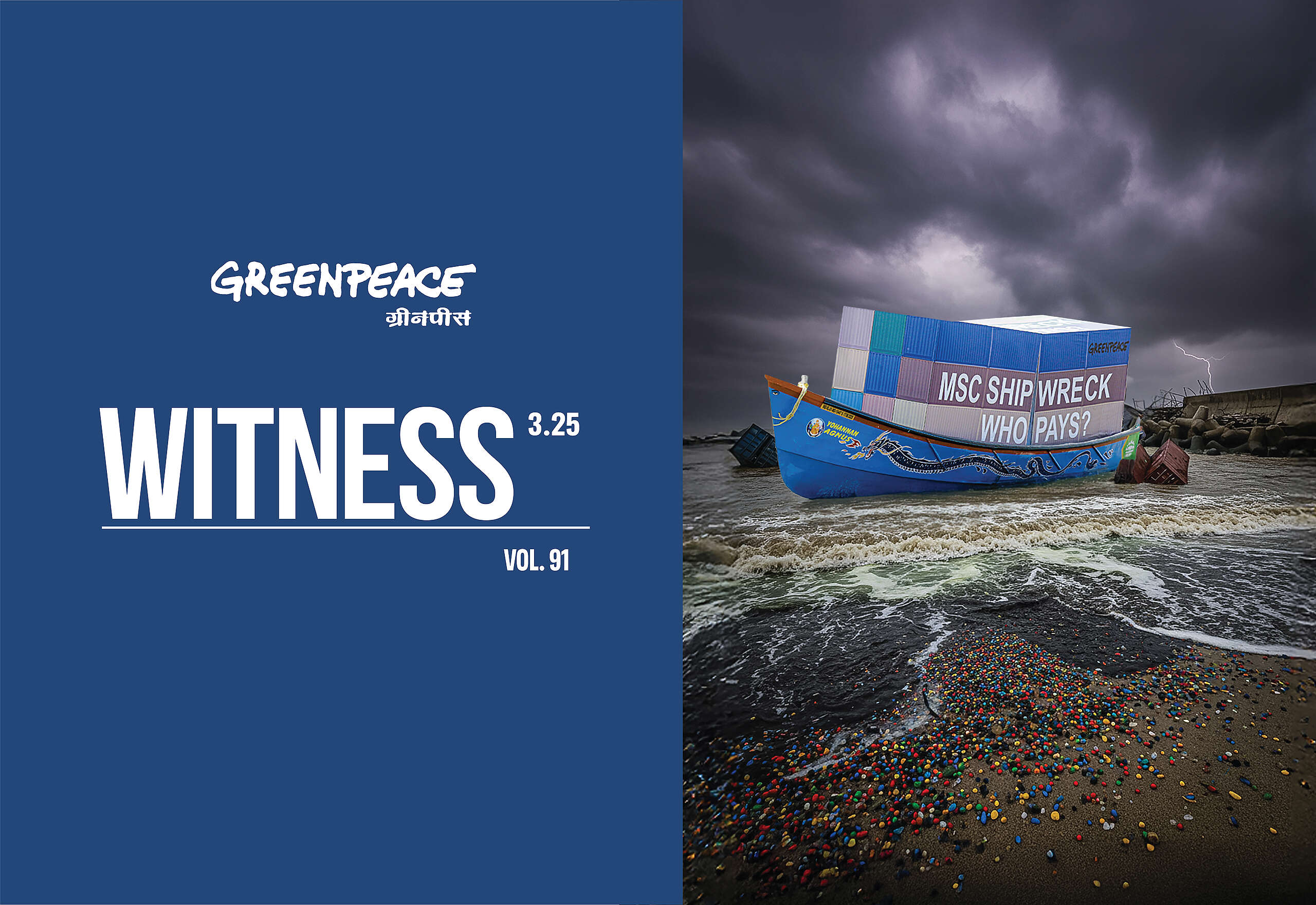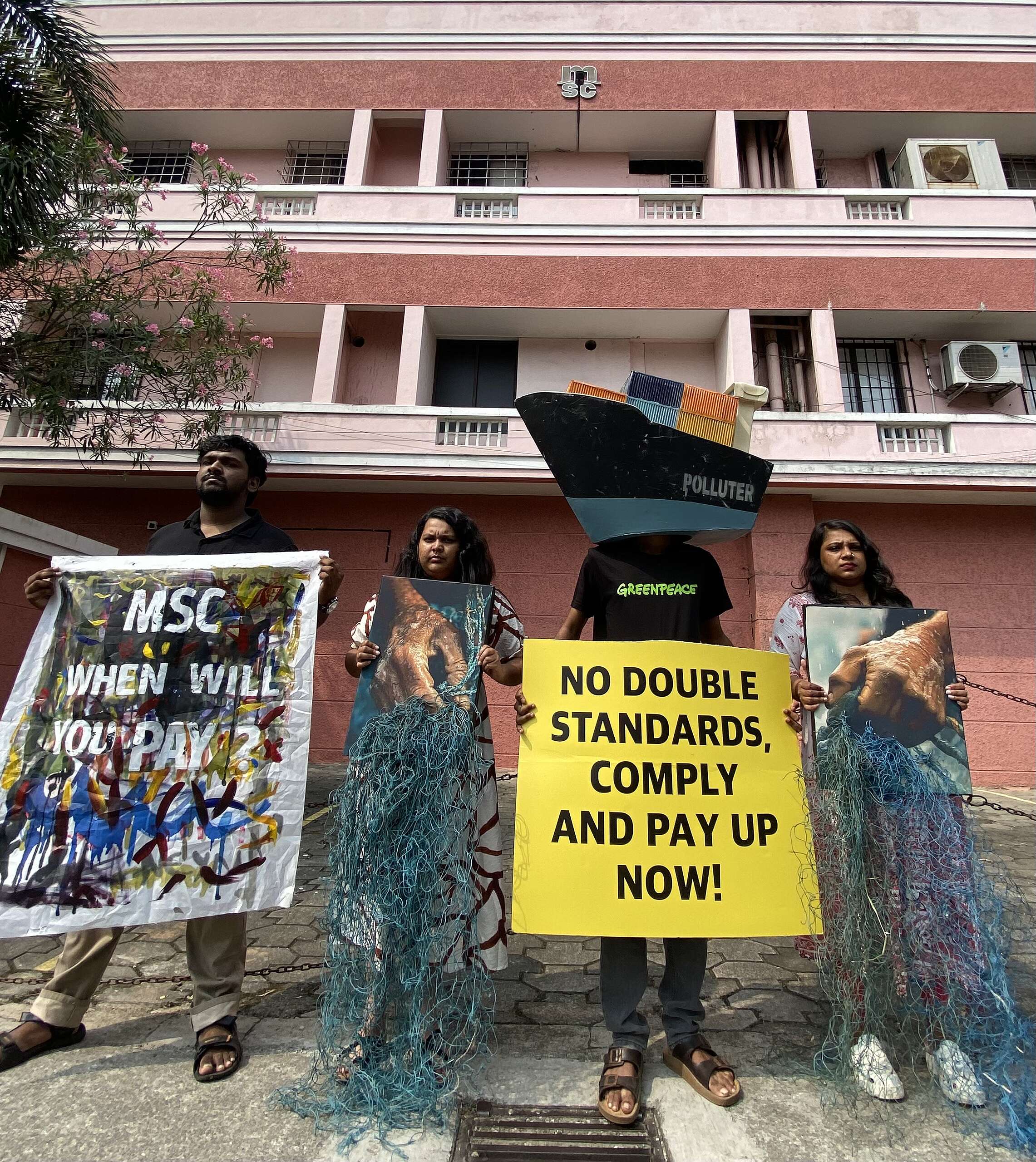
In recent years, Bengaluru has witnessed a massive surge of investment going towards private transport infrastructure. This has only worsened the traffic congestion crisis in the city while adding to the already high levels of Greenhouse gas emissions. Rapid urbanisation within Bengaluru without adequately improving the city’s bus transport system has resulted in a decline in bus ridership as well as the operational efficiency of the city’s public transport system. A systematic shift is needed to achieve affordable, safe, inclusive, comfortable and reliable bus-based public transport.
Our latest report, Bustling Through Bengaluru, talks about the results of our survey aimed at capturing the everyday travel experiences of bus users and the challenges they face during their journey. The study, conducted between January and February 2022, incorporates a total of 558 bus users’ interviews conducted by Greenpeace volunteers at five major bus stops in Bengaluru.
The study highlights how buses remain the predominant mode of travel, with 88 percent of existing bus users preferring buses over other modes of transport due to convenience and cost-effectiveness. The report further captures the impacts of COVID-19 on bus users in the city, highlighting that two-thirds of all respondents found an increase in travel time or waiting time since the COVID-19 outbreak. The post-COVID-19 period has also seen an increase in cost of travel, and this is a major concern, especially for women (18 percent of women as opposed to 10 percent of men).
The respondents underline the systemic changes needed to improve the public transport system including more buses (45 percent of respondents), improvement in timetables (23 percent), separate lanes for buses (17 percent), better first and last-mile connectivity (9 percent) and fare-free public transport (5 percent). Furthermore, bus stops need critical changes as well, including the improvement of safety and security as well as provision of toilets for all genders. Lastly, 79 percent of respondents would like to see free public transport for women and students.
The report recommends that BMTC procure universally-accessible low-floor buses in a phased manner to increase BMTC’s fleet size, while also extending priority bus lanes to more routes—keeping equitable accessibility front and centre. Bus fares also require a rethink, especially for women, children, senior citizens, differently-abled citizens and economically disadvantaged groups. Bengaluru needs a socially-just transition towards sustainability, and investing in the public transport system is the only long-term solution.



